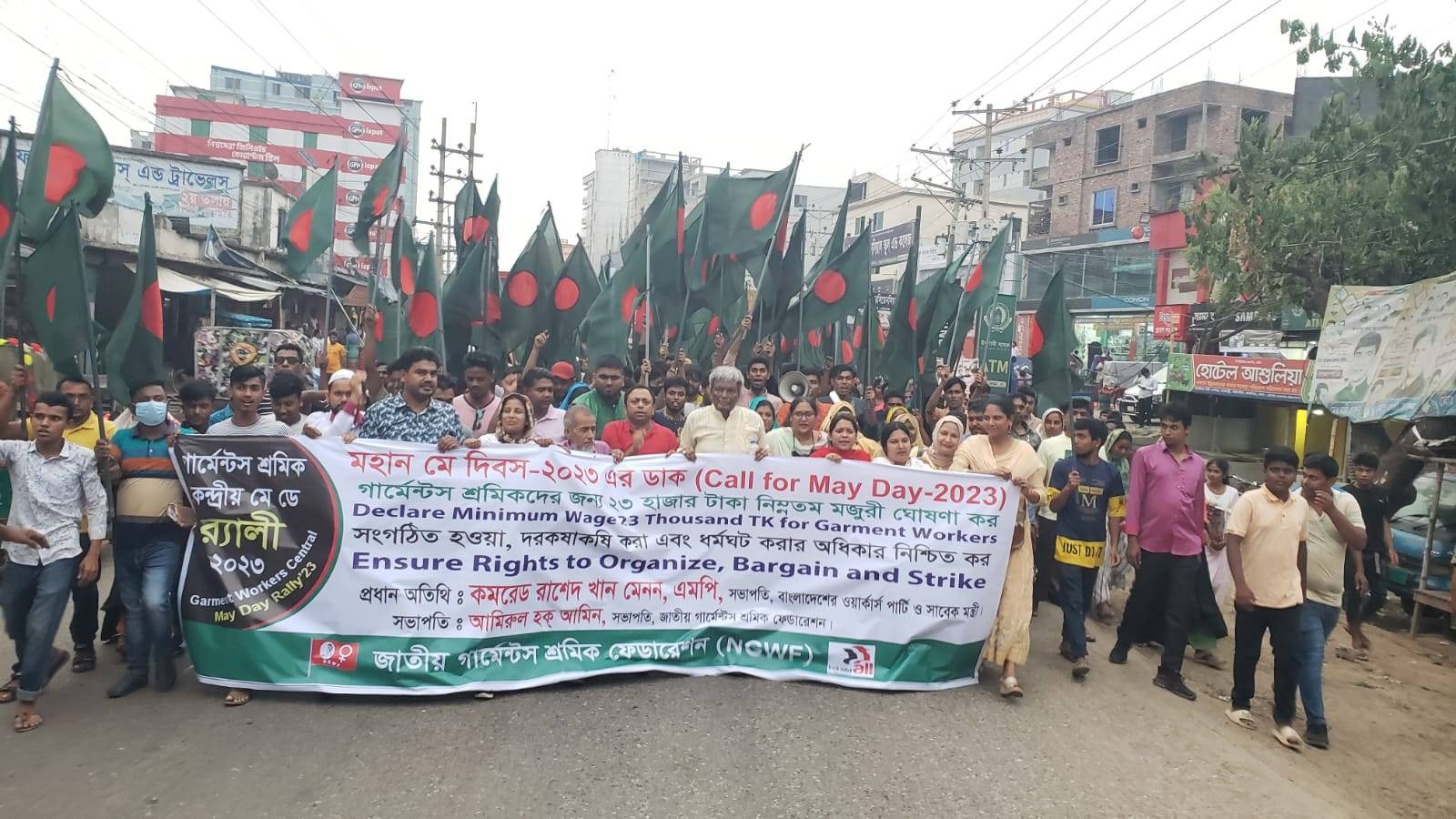Is Your Brand Paying Its Share to Reduce Bangladesh Workers’ Wage Despair?
Garment worker protests, a brutal police crackdown, worker deaths, arrests, and worker repression, and finally an official minimum wage announcement that is far below living wage levels.
For anyone who follows Bangladesh’s minimum wage negotiations, it’s like watching a preventable crash in slow-motion. There were similar worker protests and subsequent police crackdowns in 2016 and 2019.
On 7 November, the Bangladesh Labour and Employment Ministry announced “revised” minimum wages of 12,500 taka (US $113)—a revision that came five years later and is a disappointing blow to workers’ right to an adequate standard of living.
Brands sourcing from Bangladesh should pay higher prices necessary to support workers’ demands for higher wages. The latest minimum wage negotiations started in April. The unions had put forward their minimum wage demand for a modest 23,000 taka (US $208) per month. The Bangladesh Institute of Labour Studies, a well-respected Bangladeshi research group, estimated the monthly minimum for a living wage at 33,368 taka (US $302) while the estimate of the Asia Floor Wage Alliance, a network of local unions and labour organisations, was 51,000 taka (US $462).
After months of negotiations, protests began in the last week of October after the leading industry association, the Bangladesh Garment Manufacturers and Exporters Association (BGMEA), announced its offer of 10,400 taka (US $95), well below any reasonable calculation of living wages. The minimum wage between 2018 and 2023 was 8,000 taka (US $72.5), which was also well below calculations of living wages.
Protracted wage disputes are common in the global garment industry. Wage increases have consequences for suppliers’ costs and eat into their profit margins. Many garment suppliers band together to use national wage-setting systems or courts to try to drive wages down.
But also the brands themselves are driving low wages and suppliers’ resistance to wage increases with their unfair pricing and other purchasing practices. To preserve their own profits, many brands put pressure on suppliers to keep costs low. And for suppliers, exposing and rectifying brands’ unfair pricing and purchasing practices in court or otherwise is much more difficult than trying to curb the growth in workers’ wages at home.
A study by Prof. Mark Anner, director of the Center for Global Workers’ Rights, published in 2019, documented the sourcing squeeze that brands put on suppliers in Bangladesh and how this squeeze drives labour rights violations. In a January 2023 study by the University of Aberdeen, half of the 1,000 Bangladeshi suppliers surveyed said they experienced at least one unfair purchasing practice. Soon after factories reopened after Covid-19 lockdowns, about a quarter of those surveyed reported being pressured by brands to reduce prices further, selling below production costs.
This pressure is not unique to Bangladesh. A study by Anner in India showed that many brands drive down prices or refuse to factor in higher labour costs if wages rise, fuelling supplier resistance to paying workers more. A comparative survey by the International Labour Organization showed that international brands impose daunting price pressures on garment industry manufacturers.
Human Rights Watch also interviewed suppliers across Asia, who said they felt intense pressure on pricing. One Pakistani supplier said that international brands set low target prices for suppliers. Another Pakistani representative said that brands do not negotiate but simply set or impose prices.
A third supplier said that many brands that use target prices have refused to increase their prices, even after suppliers showed them how much it would cost to increase workers’ wages. In a case cited by this supplier, the brand said it wanted the supplier to pay a living wage but backtracked after seeing what it would take for them to pay a fair price.
Low purchase prices and other unfair buying practices lead factory management to adopt other poor practices to lower costs such as hiring workers on daily wages or through labour contractors to reduce the size of benefits and their contributions to social security systems.
Brand managers involved in overseeing purchasing and ethical operations have a choice.
They can merely point to the latest official minimum wages and silently accept Bangladeshi suppliers’ resistance of more progressive increases to minimum wages while ignoring that their own practices are contributing to these problems. Or they can reach out to suppliers and unions, and proactively help bridge the gap between the minimum and living wages, and commit to paying suppliers more so that workers will be paid at least 23,000 taka per month. Worker representatives have directly urged brands to do the latter. Brands’ failure to engender trust with suppliers about being fair and raising prices has contributed to low minimum wages that leaves garment workers on the verge of hunger and destitution.
This ongoing struggle for a semblance of living wages is a test for brands that claim to care about ethical sourcing. They have to be willing to pay more, increase the prices paid to suppliers, and revise their contracts to be fair to suppliers. That would meaningfully create an environment far more conducive to responsible sourcing than simply relying on their codes of conduct, flawed social auditing that doesn’t address these core issues, or other rhetoric on being responsible.
Aruna Kashyap is associate director for corporate accountability at Human Rights Watch and Christie Miedema is the campaigns and outreach coordinator at Clean Clothes Campaign
This op-ed was posted on Sourcing Journal on 15 November 2023.
14 November 2023
